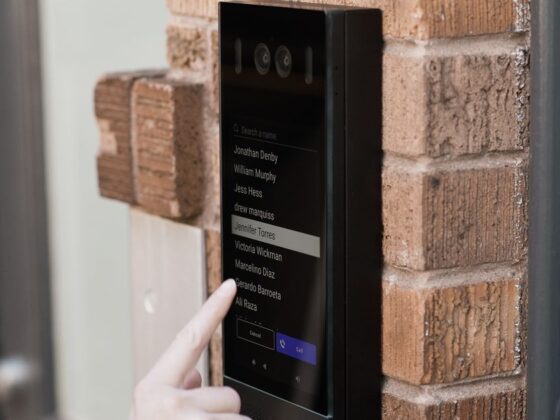Buying your first home is an exciting milestone, but it’s also a significant financial and emotional commitment. The process can be complex, especially if you’re unfamiliar with property terms, legal procedures or what to expect at each stage. This guide explores the key considerations for first-time buyers to help make the journey more manageable and more rewarding.
Understanding Your Budget

Before browsing listings or visiting open houses, it’s essential to determine how much you can realistically afford. Your budget should reflect your income, existing debts, monthly expenses and future plans.
Start by getting a mortgage agreement in principle. This not only gives you a clearer picture of your borrowing capacity but also demonstrates to sellers that you’re serious. Remember to factor in extra costs such as stamp duty (where applicable), legal fees, moving expenses and ongoing home maintenance.
Having a buffer in your budget can reduce financial strain after moving in, especially during the first year, when unexpected costs often arise.
Location Matters More Than You Think
When choosing a location, think long-term. Consider what lifestyle you want in the next five to ten years. Do you need proximity to work? Are local schools important? How about access to public transport, green spaces or nightlife?
Beyond your personal needs, think about resale potential. Some areas retain or grow in value better than others. Research local developments and regeneration projects, which can influence house prices and community amenities in the future.
For example, many first-time buyers exploring property in the Bristol area often consult estate agents bishopston to understand neighbourhood nuances, pricing trends and hidden gems that might suit their lifestyle and budget.
Choosing the Right Type of Property

Not all homes are created equal. While the idea of a character-filled period property might be appealing, it could come with hidden maintenance challenges. New builds, on the other hand, offer modern layouts, energy efficiency and developer guarantees but might lack the charm or space older properties offer.
Ask yourself questions like:
- Do I want to renovate or move straight in?
- How much space do I need now and in five years?
- Am I open to leasehold properties, or do I prefer freehold?
Apartments might be perfect for solo buyers or couples, while terraced or semi-detached homes offer more space for growing families.
Understanding the Legal Process
Buying a home involves a series of legal steps, usually overseen by a solicitor or conveyancer. They will carry out property searches, handle contracts, liaise with the seller’s solicitor and ensure your money is transferred securely.
It’s crucial to choose a solicitor who is experienced, communicative and transparent with timelines and fees. Many delays and frustrations in home buying stem from poor communication during the legal process. Ask friends for recommendations or check online reviews before committing.
Also, be aware of the legal implications of different property types, such as shared ownership, leasehold arrangements or homes with restrictive covenants.
Viewing Properties with Purpose
It’s easy to get swept away by aesthetic features during viewings. Instead, try to stay objective and look beyond the surface. Consider structural integrity, the age of the roof, insulation quality and damp patches.
Don’t be afraid to:
- Test taps and water pressure
- Open and close windows and doors
- Ask about recent renovations or repairs
- Inquire about council tax bands and utility bills
Bring a checklist to each viewing and take notes or photos. This will help you compare properties later when memories blur.
Getting a Survey Done
Although a mortgage lender may conduct a valuation survey, this isn’t the same as a comprehensive home survey. As a first-time buyer, especially if you’re buying an older property, it’s wise to commission an independent survey. This could save you thousands by identifying hidden problems early.
Surveys range from basic condition reports to full structural assessments. Your choice should reflect the property’s age, construction type and your willingness (or ability) to carry out repairs.
Negotiating Offers Confidently
Once you’ve found your ideal property, making an offer can feel daunting. The asking price isn’t always set in stone. If the property has been on the market for a while, or if your survey reveals needed repairs, you may be in a strong position to negotiate.
Be clear on your budget limits and know when to walk away. Emotional attachment can lead to overbidding, which might stretch your finances too thin.
It helps to understand the local market. If similar homes are selling quickly at their asking price or higher, low offers may not be considered seriously. Rely on your estate agent for advice – they’re there to support you throughout the offer process.
Thinking Beyond the Purchase

Many first-time buyers focus so much on getting the keys that they forget to plan for life after the move. But your costs won’t stop once you’ve bought the home.
Think ahead about:
- Furnishing and decorating
- Setting up utilities
- Ongoing maintenance and repairs
- Home insurance
It’s also worth creating a six-month emergency fund if possible. This safety net offers peace of mind in case of sudden job changes, boiler breakdowns or other surprises.
Don’t Rush—But Don’t Stall Either
It’s natural to want everything to happen quickly, especially when you fall in love with a home. But rushing can lead to overlooked issues or missed opportunities. Take the time to read every document carefully, understand your commitments and seek advice if unsure.
That said, waiting too long can also lead to disappointment. Good properties sell fast, especially in competitive markets. If you’re prepared and know your priorities, you’ll be in a better position to act decisively.
The Emotional Journey
Buying your first home is about more than bricks and mortar. It’s the start of a new chapter, whether you’re moving in alone, with a partner or starting a family.
It’s normal to feel overwhelmed, unsure or even scared at times. But it’s also a period filled with hope, independence and pride. Celebrate the small wins. Don’t compare your journey to others. And remember, this is your home and your future.
Final Thoughts
For first-time buyers, knowledge is power. From budgeting and surveys to solicitors and neighbourhood choices, every decision matters. Taking the time to learn about the process can protect you from common pitfalls and set the foundation for a happy home.


